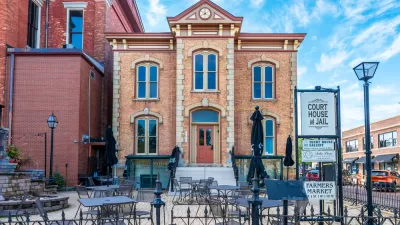Minneapolis is one of several cities that have filed lawsuits against mortgage companies, seeking damages for the blight caused by the large number of foreclosures in some of its neighborhoods.
"Valeria Golebiowski moved to the Hawthorne neighborhood 45 years ago, and she's staying even as it crumbles around her.
Golebiowski, 72, remembers when flower gardens bloomed and neighbors chatted over coffee. Eleven of the 13 houses that once made up her block are vacant, condemned or demolished - victims of a foreclosure crisis that walloped this north Minneapolis neighborhood on the Mississippi River.
A city plan to redevelop the neighborhood stalled over 415 31st Ave. North, a decrepit, long-vacant bungalow in the middle of the block. In October, CitiMortgage foreclosed on the house.
The Hawthorne Area Community Council then sued CitiMortgage in January, saying the lender had approved an inflated mortgage on the property and created a nuisance by failing to fix it up after foreclosure.
Hawthorne and the city of Minneapolis are pioneers in an emerging civic strategy to sue lenders and banks to recoup lost revenue and reclaim neighborhoods devastated by the mortgage crisis. Around the country, the loss of tens of thousands of homes to foreclosure is shrinking cities' tax base, straining city services such as policing, and ruining neighborhoods.
Minneapolis and three of its neighborhoods won their first legal battle last month in a separate lawsuit against real estate company TJ Waconia, when a judge appointed a legal caretaker to manage 141 mostly vacant properties.
Cleveland, Baltimore and Buffalo also have sued lenders and banks in recent months. St. Paul has written to its lenders threatening a lawsuit if they don't fix their foreclosed properties.
"Hundreds of cities across the United States are in the same position," says Greg Squires, a professor of sociology at George Washington University who studies urban redevelopment. "I think there will be more lawsuits. If we get an early decision in one of these cases, it will either encourage or discourage" other cities from filing suit."
FULL STORY: Cities sue home lenders

Planetizen Federal Action Tracker
A weekly monitor of how Trump’s orders and actions are impacting planners and planning in America.

Chicago’s Ghost Rails
Just beneath the surface of the modern city lie the remnants of its expansive early 20th-century streetcar system.

San Antonio and Austin are Fusing Into one Massive Megaregion
The region spanning the two central Texas cities is growing fast, posing challenges for local infrastructure and water supplies.

Since Zion's Shuttles Went Electric “The Smog is Gone”
Visitors to Zion National Park can enjoy the canyon via the nation’s first fully electric park shuttle system.

Trump Distributing DOT Safety Funds at 1/10 Rate of Biden
Funds for Safe Streets and other transportation safety and equity programs are being held up by administrative reviews and conflicts with the Trump administration’s priorities.

German Cities Subsidize Taxis for Women Amid Wave of Violence
Free or low-cost taxi rides can help women navigate cities more safely, but critics say the programs don't address the root causes of violence against women.
Urban Design for Planners 1: Software Tools
This six-course series explores essential urban design concepts using open source software and equips planners with the tools they need to participate fully in the urban design process.
Planning for Universal Design
Learn the tools for implementing Universal Design in planning regulations.
planning NEXT
Appalachian Highlands Housing Partners
Mpact (founded as Rail~Volution)
City of Camden Redevelopment Agency
City of Astoria
City of Portland
City of Laramie





























